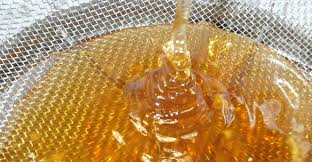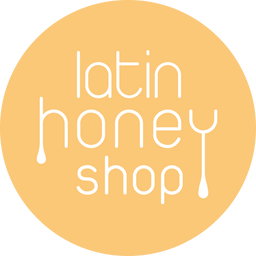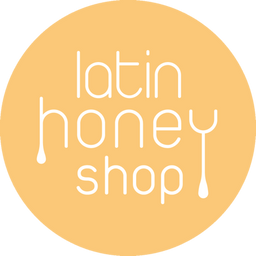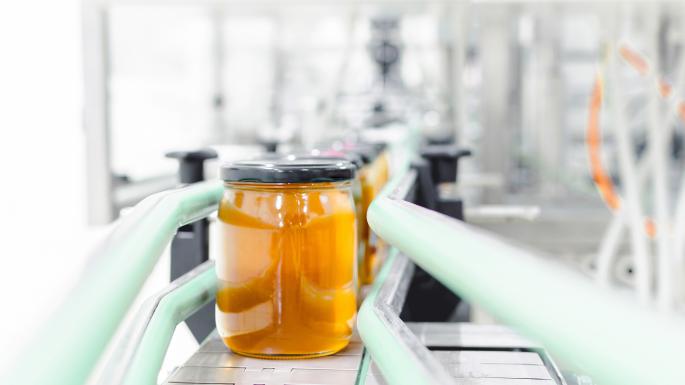
In 2020 the UK supermarket chain Tesco withdrew thousands of jars of honey from its shelves after they were suspected of containing cheap sugar syrup.
Richmond Council in London conducted NMR (Nuclear Magnetic Resonance) tests on Tesco honey and, as a council spokeswoman told The Sunday Times, found, "...that there is likely to be adulteration with non-natural products."

Although there is no suggestion that Tesco was knowingly selling fake honey, the finding has implications for honey sold in supermarkets and online all over the UK.
According to Michigan State University's Food Fraud Initiative (FFI), honey is the third most faked food in the world.

In 2018 the UK health food chain Holland and Barrett announced plans to begin testing its manuka honey after learning that most manuka honey on the market today is fake.
A 2018 survey by an international honey fraud detection laboratory found that nearly half of the honey sold on Australian supermarket shelves is adulterated.

"Honey" made by bees fed sugar syrup in industrial farms in China is one of the principal ingredients of fake honey in the UK. The UK is the world's largest importer of Chinese honey.
According to official Eurostat figures, in 2018, the UK imported over 35000 tons of honey from China, more than any other country in the EU.
Yet, "honey from China" is nowhere to be seen on UK supermarket shelves. So where is this honey?
The answer is that it has been blended with other honeys and sold off as cheap honey in supermarkets.
At the other end of the scale, expensive honeys such as manuka and sidr honey are more likely to be fake than other honeys.

The global annual production of manuka honey is 1700 tonnes. Yet over 10,000 tons of "manuka honey" is sold worldwide. Do the maths.
Likewise, less than 2000 tonnes of genuine Yemeni Sidr honey is produced every year, even less since the war began in 2014, yet several times more Yemeni Sidr honey is sold globally. The numbers don't add up.

All (100%) of Yemeni and Pakistani Sidr honey sold in the UK and EU is illegally smuggled into the country because port health authorities cannot guarantee that it is free of chemicals harmful to humans. Much of it is fake too.
Any honest seller of Yemeni or Pakistani Sidr honey in the UK will confirm that it was illegally smuggled into the UK without any checks.
How can a consumer spot fake honey and how can a consumer guarantee he is getting real honey?

Honey is big business. With jars of manuka and Yemeni Sidr honey selling in the UK for £100 a jar, it is not surprising that international honey laundering networks would seek to profit from honey.
There are three main ways in which honey is faked:
1. Sugar, corn syrup or other substances are added to honey sold off as "pure."
Clear runny honey that is super sweet and leaves an acidic taste in the throat is more likely to contain sugar.

Commercially processed "honey" brands sold on supermarket shelves are the biggest culprits here.
2. Pollen is filtered out of honey meaning that it is no longer considered pure honey.

Honey which crystallises quickly, especially when cold, is more likely to contain pollen.
3. The geographical and botanical origin of honey is faked or hidden by filtering out its pollen and blending together multiple honeys.

If your honey label does not contain the floral or country of origin of the honey, it is most probably a blend. Watch out for "Blend of EU/non-EU honeys" on the label.
If you are buying honey in the EU and the country of origin is not listed in the list of 45 countries in EU directive 2016/601 then the honey is illegal and can be dangerous to consume due to the presence of chemicals harmful to humans.

So how is the average person supposed to check that they and their children are eating real honey?
Firstly, check that your honey jar has the name, address and contact details of the supplier.
Secondly, ask them these five questions to check if your honey is genuine or not.
1) Is your honey pasteurised (heat-treated) to over 45C?
2) Is your honey fine-filtered?
3) What is the region, country and plants where your honey comes from?
4) (If you live in the UK or EU) Is the country where your honey comes from on the list of 45 countries in EU directive 2016/601 allowed to legally export honey to the EU?
5) (For honey claiming to be organic), what is the name of your organic certifying body?
In general, avoiding large commercial brands and sticking to specialist food shops, farmer's markets or reputable online honey suppliers is a good way of ensuring you are buying real honey.
Be wary of any honey labelled "organic" if it does not have an organic certifying code and symbol.
Be wary of any honey being sold with a phone number on the label but without the name and address of the company.
The Latin Honey Shop sells a range of award winning, unpasteurised, certified organic honeys from Latin America.
All our honeys are imported into the UK legally, subject to physical and documentary Port Health checks, and certified organic by the UK Organic Food Federation.
Click here to view our online store.
For a fascinating documentary about the fake honey industry, watch the Netflix documentary titled "Lawyers, Guns and Honey", Rotten Season 1, Episode 1.



